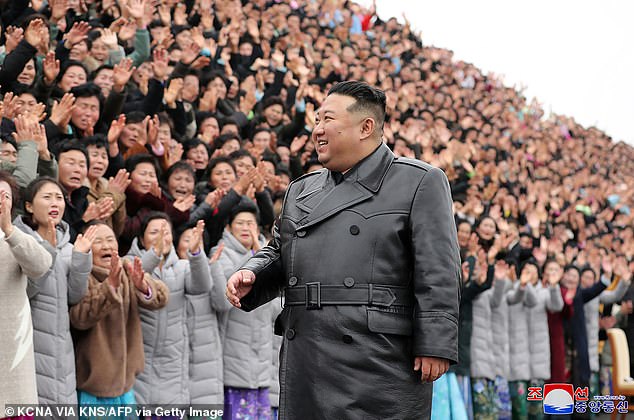Kim Jong Un’s state media has declared South Korea a “fascist dictatorship” following the president’s brief attempt to impose martial law on the nation.
The one-party state’s damning criticism of its southern neighbor comes as the defense minister who claimed responsibility for President Yoon Suk Yeol’s martial law debacle attempted to take his own life.
As the political crisis in South Korea deepens, Kim Jong Un’s state media finally broke its silence by, somewhat ironically, criticizing Yoon for provoking a “dictatorship of the people.”
North Korea’s KCNA state news agency, in words reported by the guardiansaid: ‘The puppet Yoon Suk Yeol, who had already faced a serious government crisis and impeachment, unexpectedly declared martial law and unleashed the weapons of the fascist dictatorship against the people.’
The hermit kingdom has been ruled by three generations of the Kim dynasty since the country was formed as a satellite state of the Soviet Union in 1948.
It is widely considered one of the most brutal totalitarian states in the world.
In a somewhat rare development, Rodong Sinmun, the official newspaper of the ruling Workers’ Party of Korea, published a detailed report on last week’s tumultuous events in Seoul, including photographs of the protests.
“The international community is watching sternly, believing that the martial law incident exposed the vulnerabilities of South Korean society… and that Yoon Suk Yeol’s political life could face a premature end,” it reported.
North Korean leader Kim Jong-Un sharply criticized the president of his southern neighbor for provoking a “dictatorship of the people.”
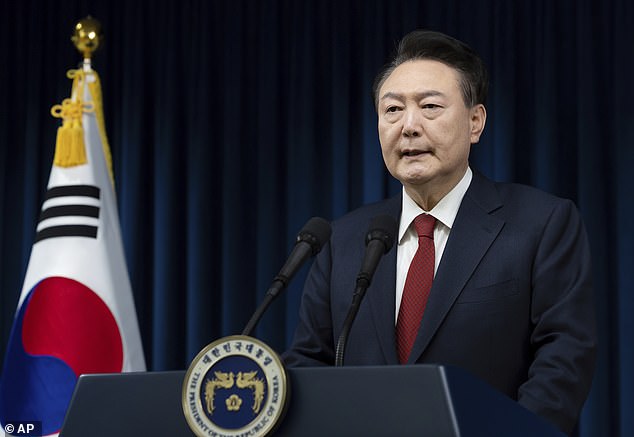
President Yoon Suk Yeol survived his first impeachment vote on Saturday after his right-wing People Power Party (PPP) boycotted the vote.
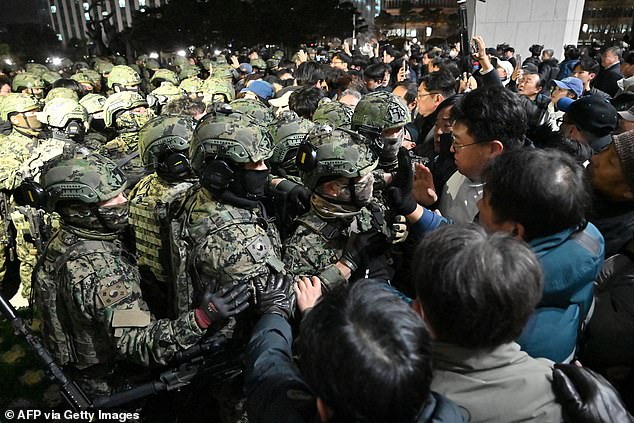
MPs block soldiers trying to enter South Korea’s parliament in Seoul. Martial law was revoked after parliament, including members of Yoon’s party, defied police and military cordons to vote unanimously against the order.
KCNA continues to describe South Korea as a “gangster nation,” a description often used against the regime of Kim Jong Un, whose family has cultivated a cult of personality that continues to impoverish most of society, while the ruling elite lives a life of luxury in Pyongyang. .
However, despite the apparent hypocrisy in North Korea’s criticism of the South, experts say it serves the regime to exploit any crisis in democratic and aligned South Korea.
Speaking to The Guardian, Leif-Eric Easley, a professor at Seoul’s Ewha University, said: “The leaders of Russia, China and especially North Korea are probably watching the political turmoil in South Korea with glee, sensing a geopolitical advantage. .
“Authoritarian regimes believe that if they manage to stay in power, they can survive democratic rivals that eventually harm themselves, descend into dysfunction, and quarrel with their allies.”
North Korea’s comment comes as former Defense Minister Kim Yong-hyun attempted to take his own life while in prison.
He was detained Sunday for his role in last week’s events before being formally arrested on insurrection charges.
According to authorities, he was found attempting suicide and is now in stable condition.
The turmoil in South Korea began when Yoon shocked South Korea and the world when he declared martial law late on Tuesday last week.
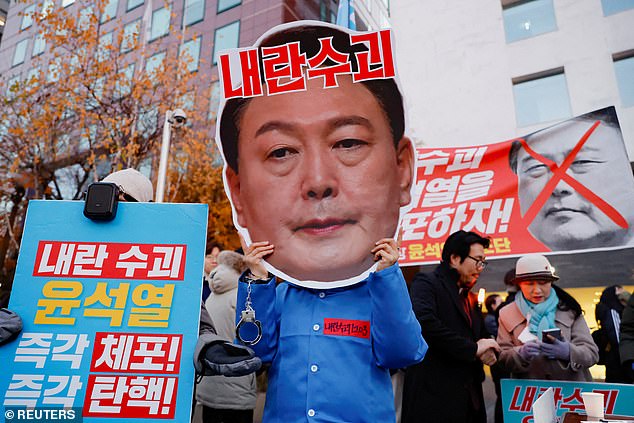
A protester carries a cutout of the president’s face. In a somewhat rare development, Rodong Sinmun, the official newspaper of North Korea’s ruling party, published a detailed report on last week’s tumultuous events in Seoul, including photographs of the protests.
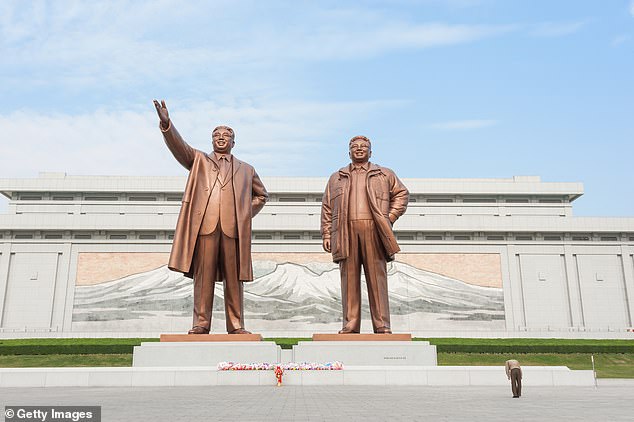
Statues of former North Korean leaders Kim Il-Sung and Kim Jong-Il in Pyongyang. The hermit kingdom has been ruled by three generations of the Kim dynasty since the country was formed in 1948. It is widely considered one of the most brutal totalitarian states in the world.
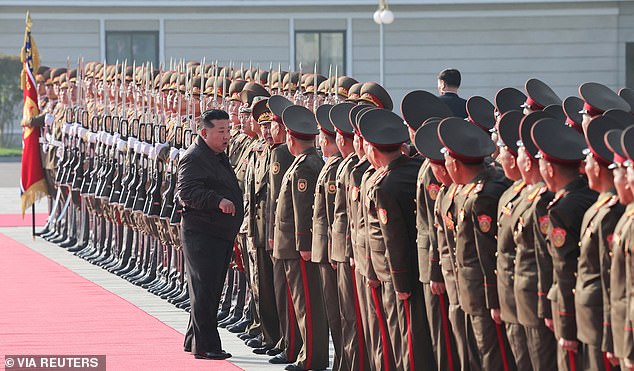
Kim Jong-Un inspects members of his army. Despite the apparent hypocrisy in North Korea’s criticism of the South, experts say it serves the regime to exploit any crisis in democratic and aligned South Korea.
This gave the military sweeping emergency powers to root out what Yoon called “pro-North anti-state forces” and overcome obstructionist political opponents.
The decree, which is the first time martial law has been declared since the country transitioned to democracy in 1987, gave the military sweeping emergency powers to root out what it called “anti-state forces” and defeat political opponents. obstructionists.
However, the order was revoked six hours later after parliament, including members of Yoon’s party, defied police and military cordons to vote unanimously against the order.
Yoon’s sudden statement plunged South Korea, Asia’s fourth-largest economy and a key U.S. military ally, into its biggest political crisis in decades.
Since then, opposition against the already unpopular president has galvanized as members of the public took to the streets waving signs and calling for Yoon’s ouster.
Opposition parties presented a motion of no confidence on Saturday, which the president survived after his right-wing People’s Power Party (PPP) boycotted the vote.
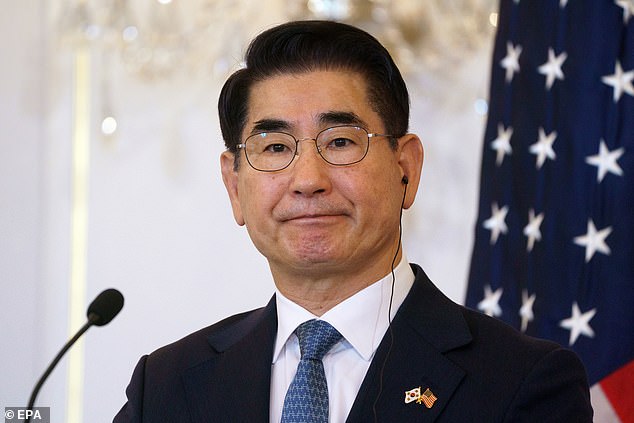
North Korea’s comment comes as former Defense Minister Kim Yong-hyun (pictured) attempted to take his own life.
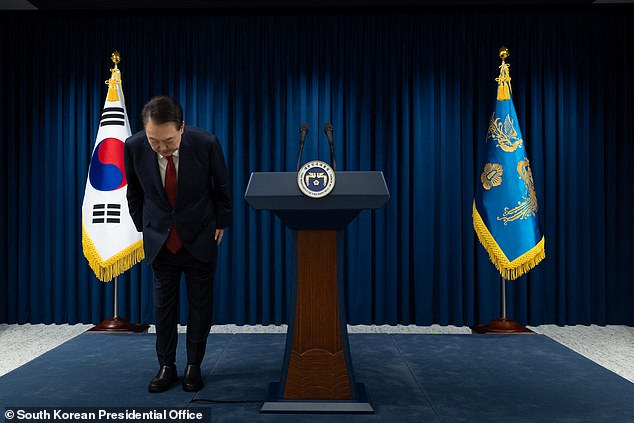
Yoon bows after his speech. Last Saturday, Yoon addressed the nation in a televised speech to apologize for the move and say he would face any repercussions, although he did not offer to resign.
The Democratic Party, South Korea’s main opposition party, said it will try again to overthrow Yoon on December 14.
Speaking to reporters, its leader Lee Jae-myung said: “Yoon, the main culprit of the insurrection and military coup that destroyed South Korea’s constitutional order, must resign immediately or be charged without delay.”
Last Saturday, Yoon addressed the nation in a televised speech to apologize for the move and say he would face any repercussions, although he did not offer to resign.
Although his own party boycotted the first no-confidence vote, its leader Han Dong-hun has made clear that the PPP believes the president should resign.

